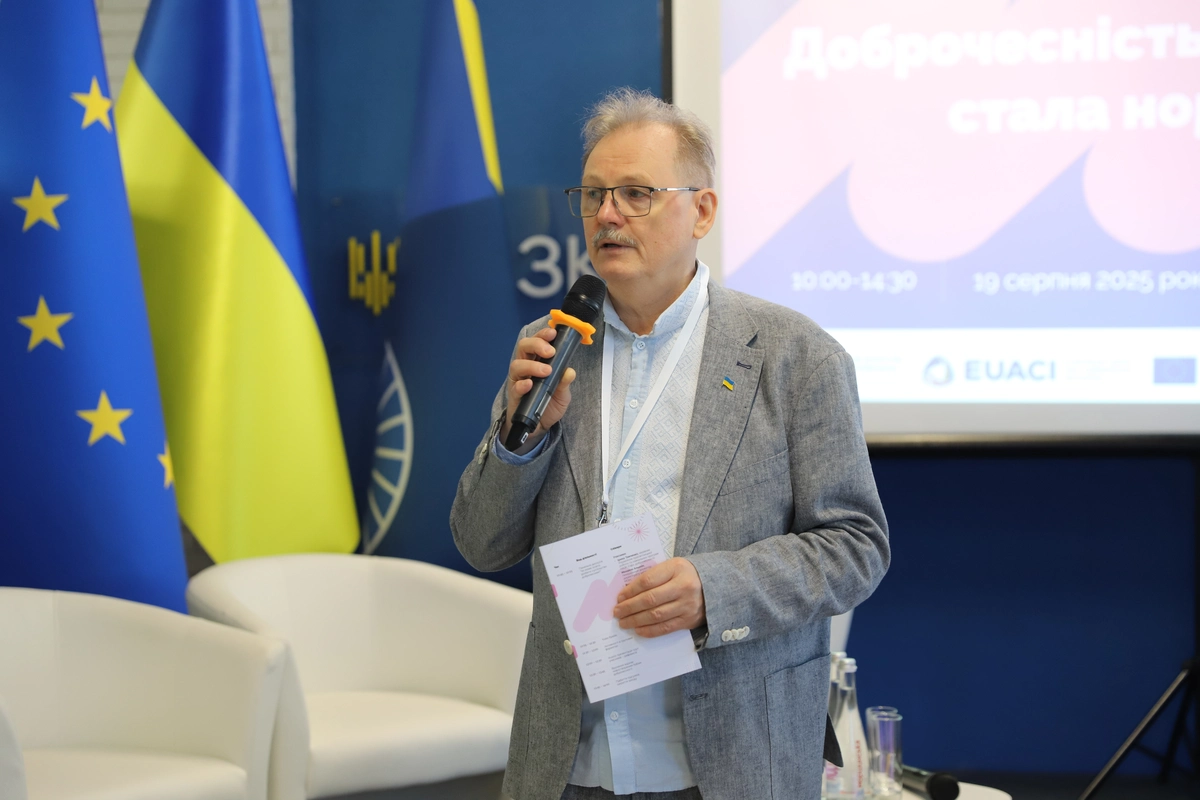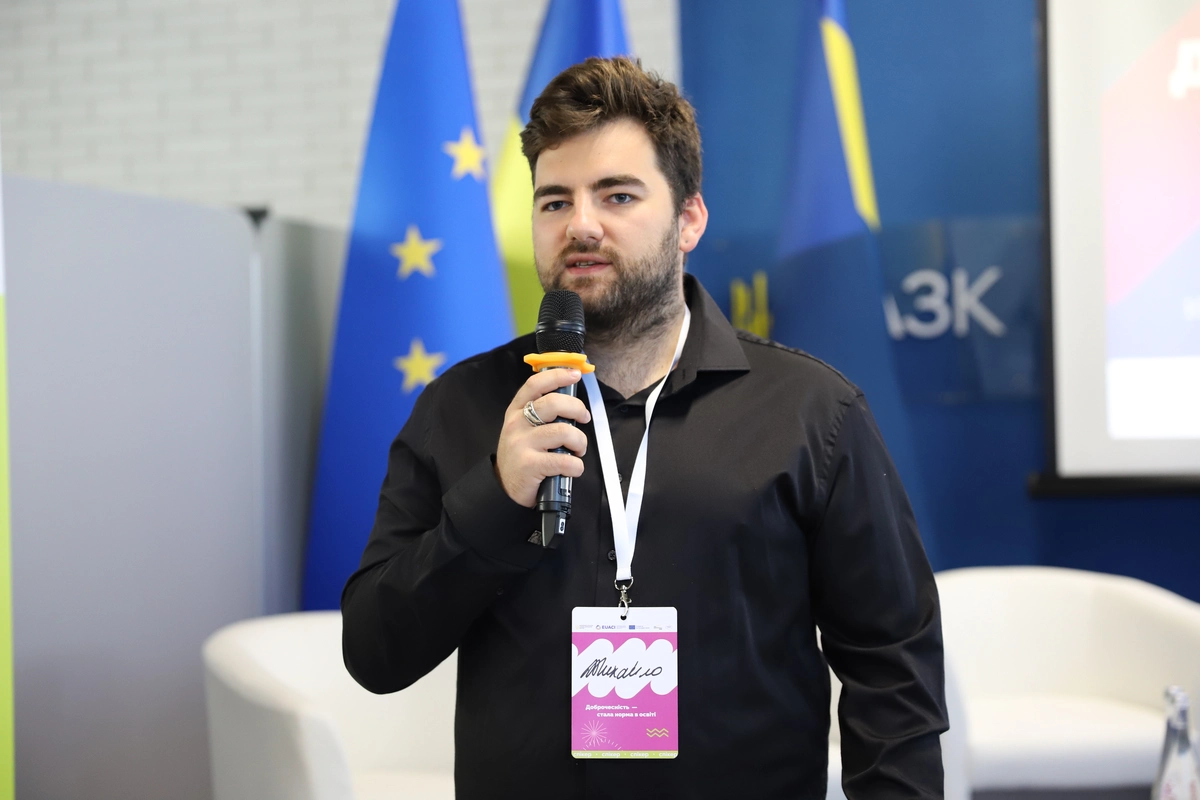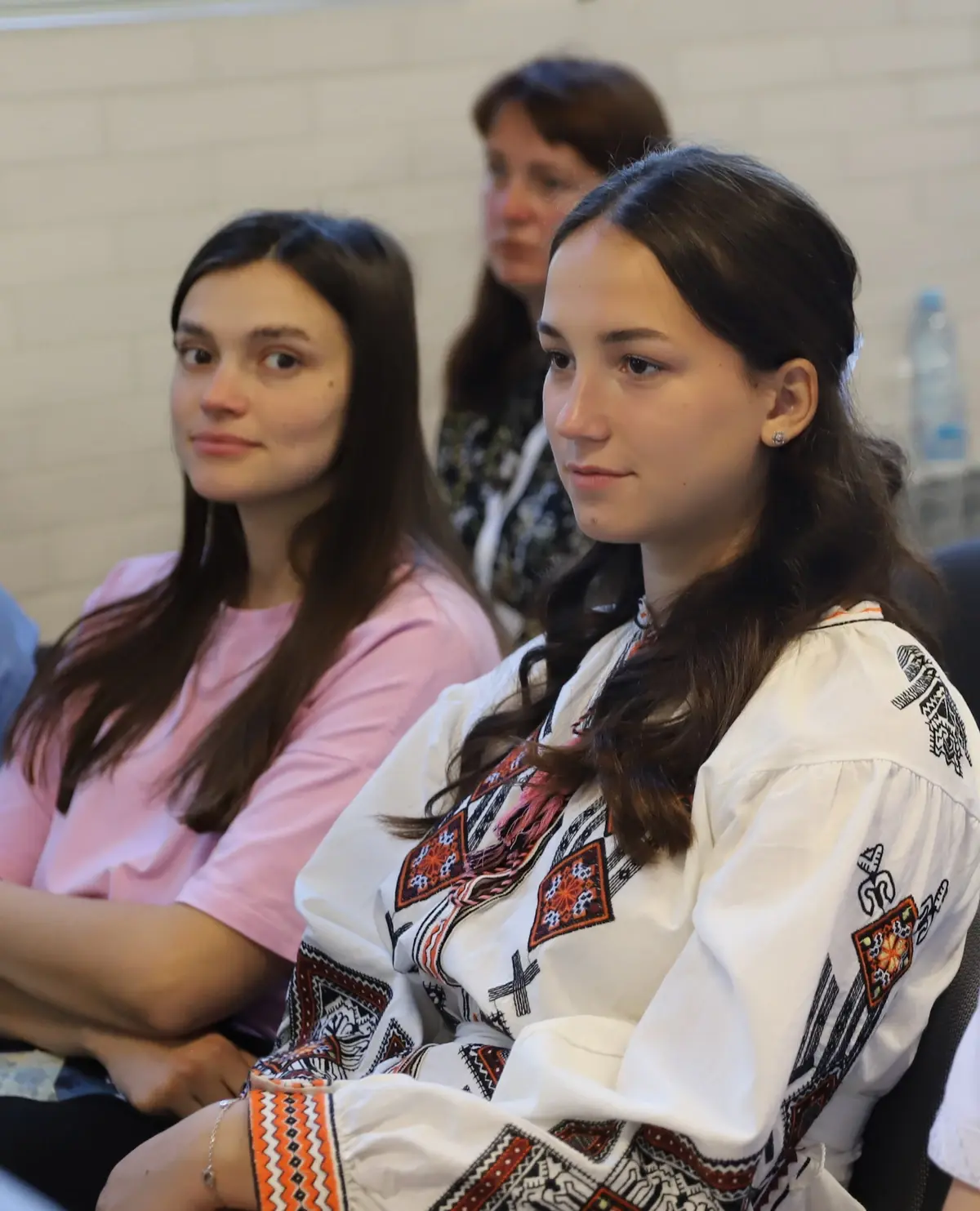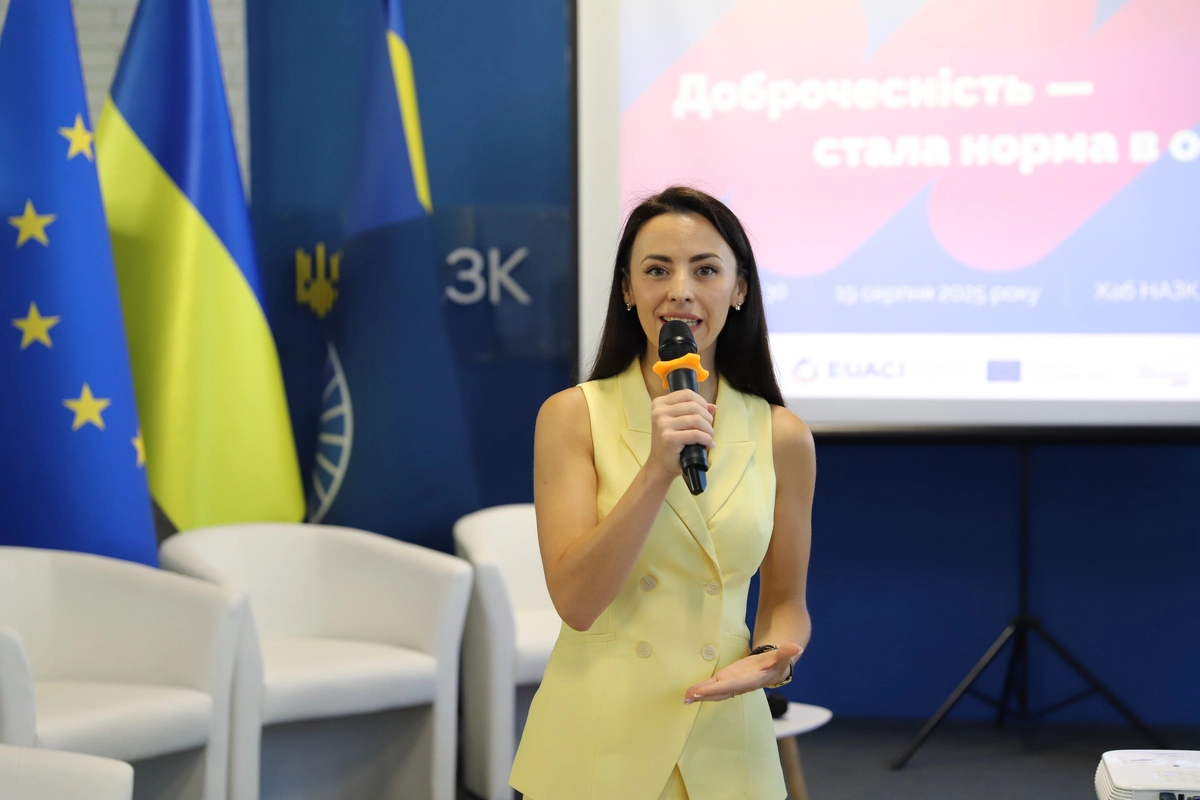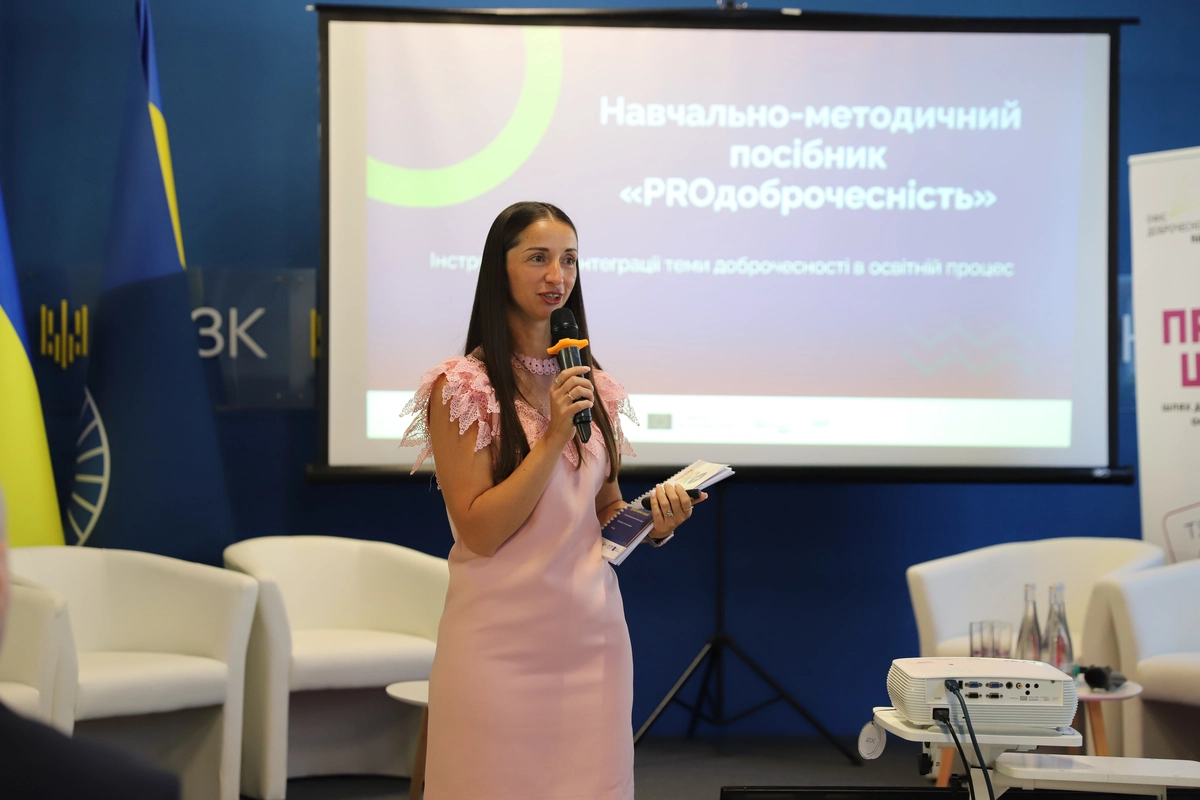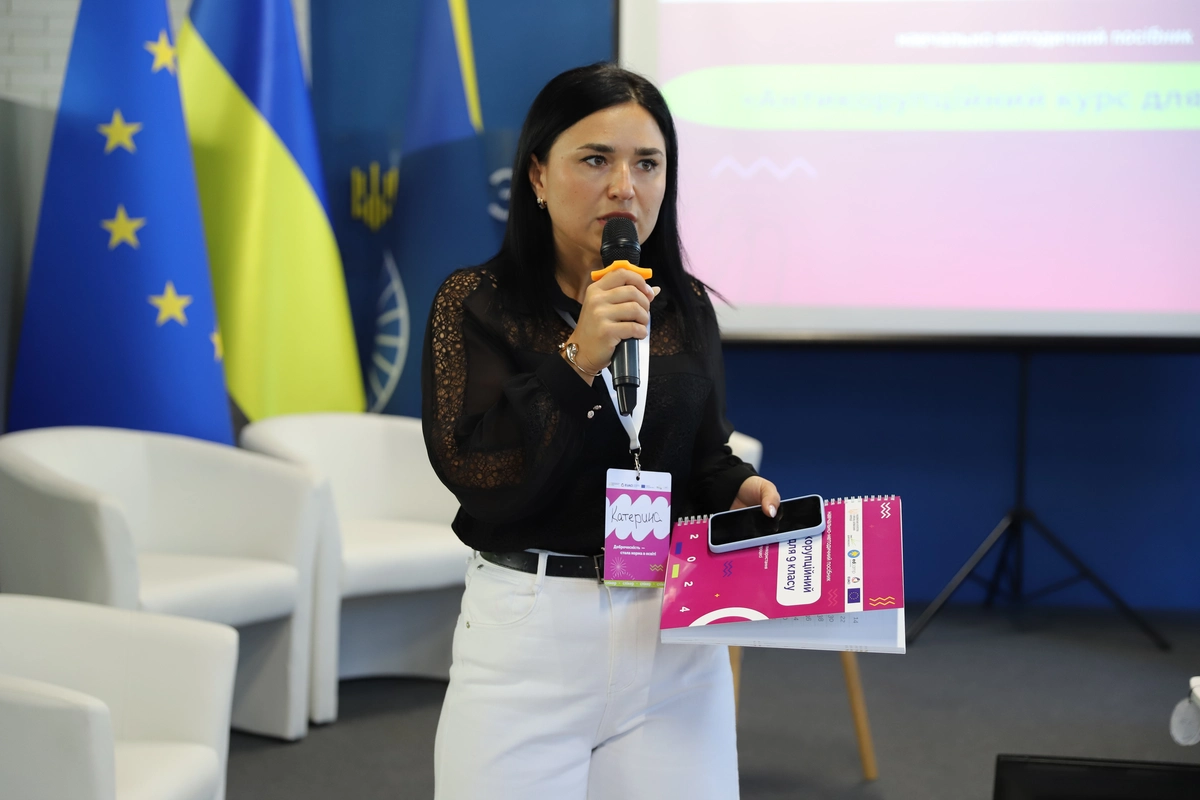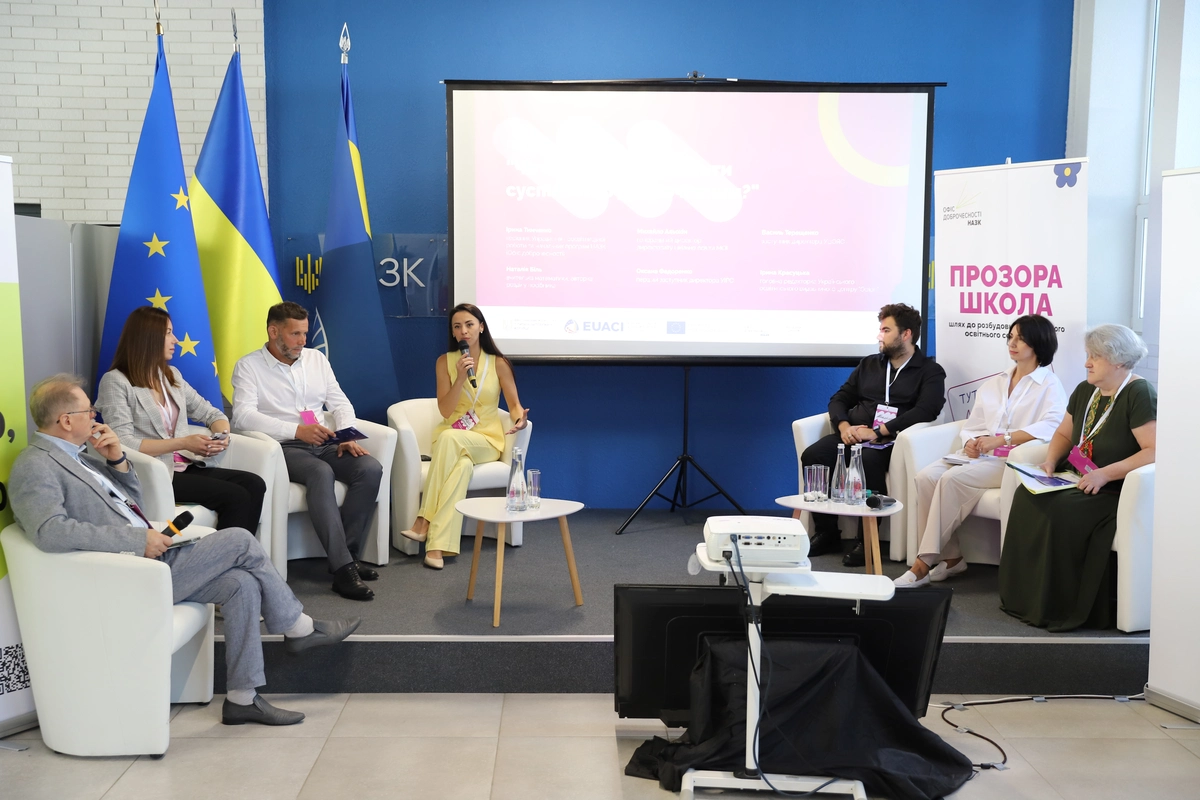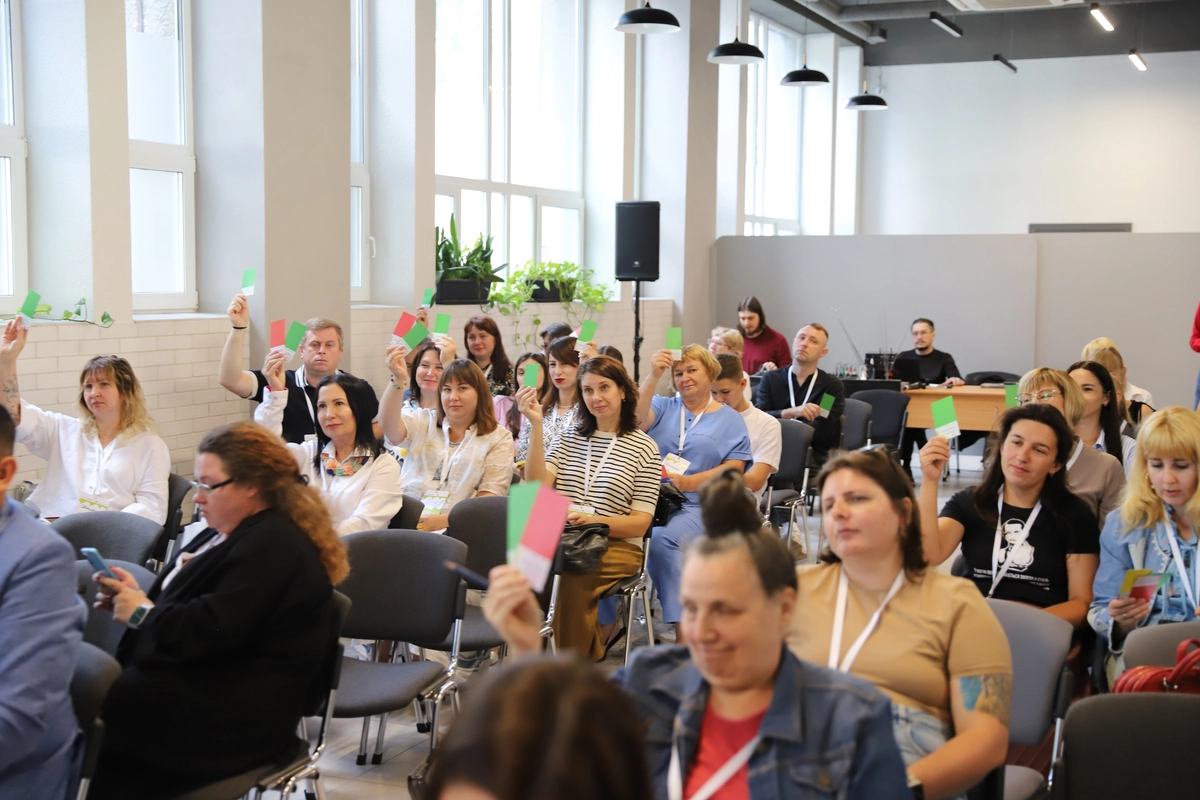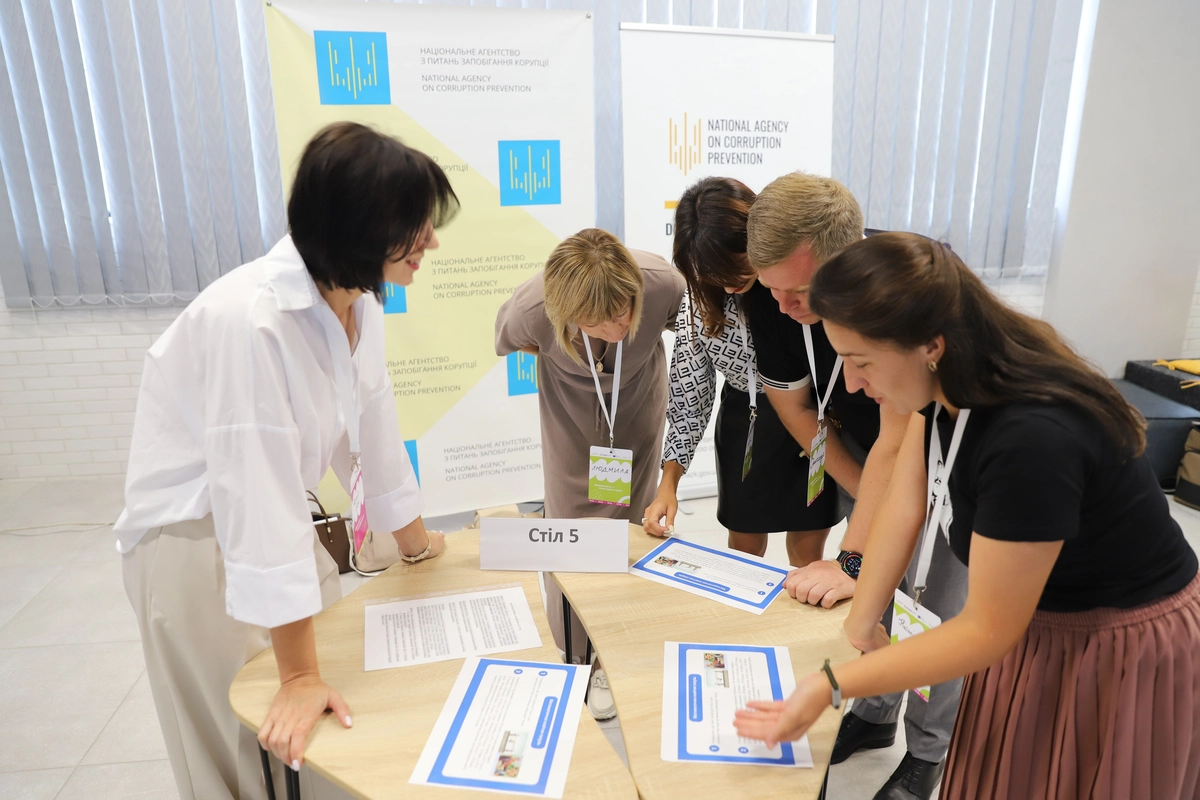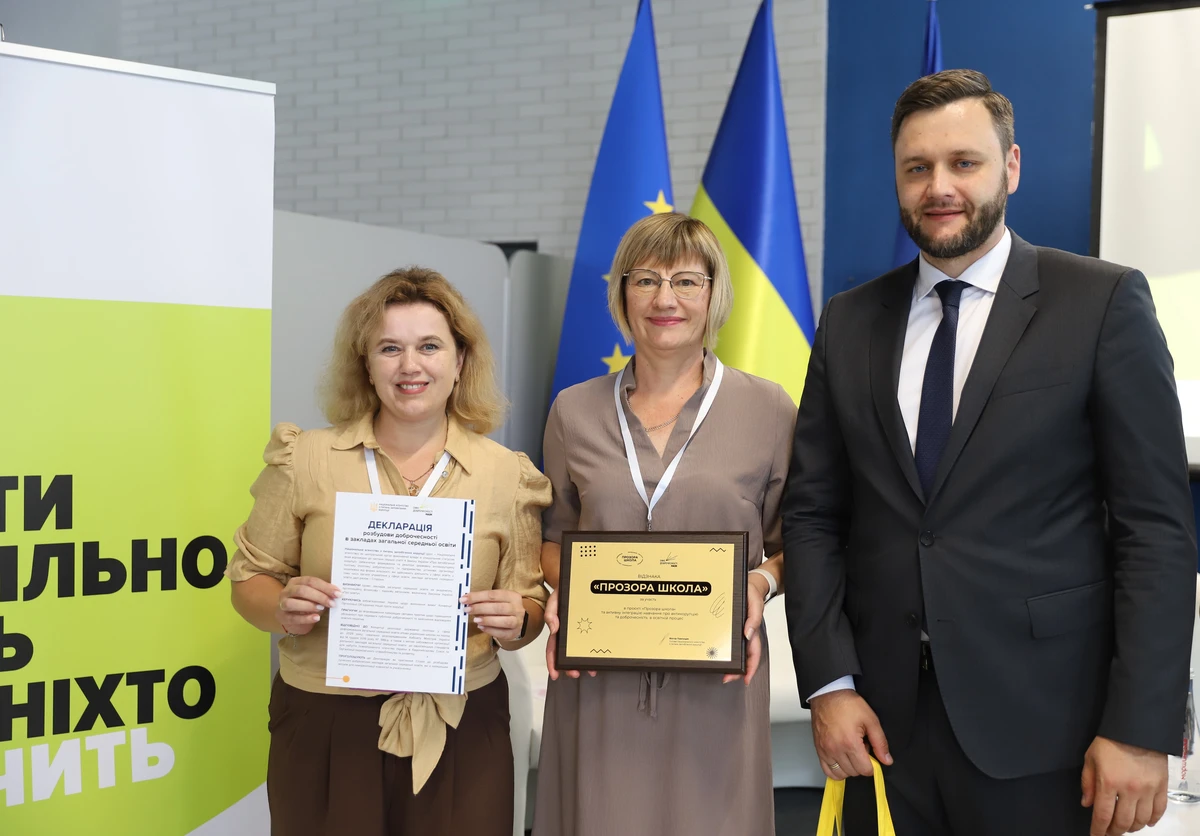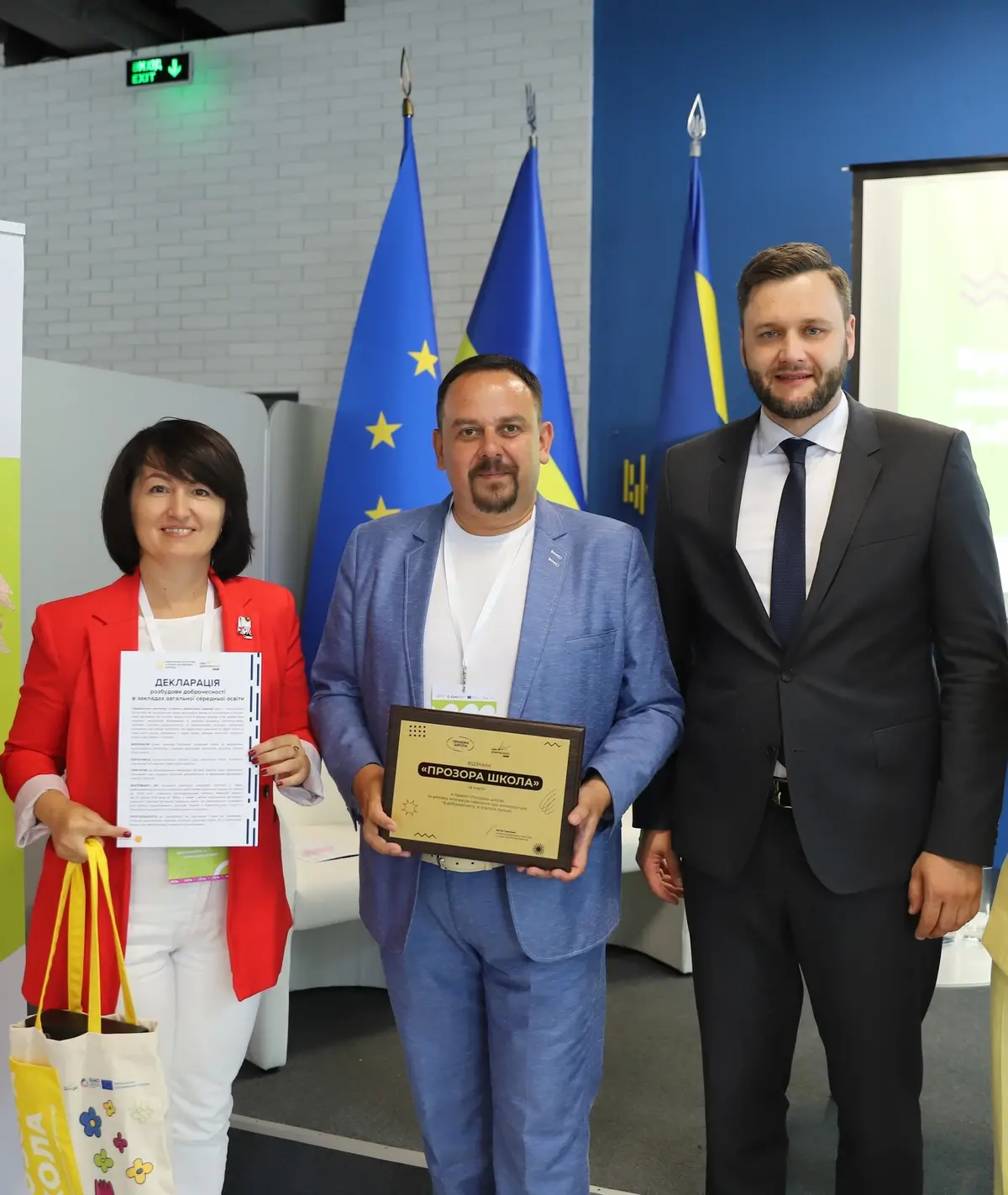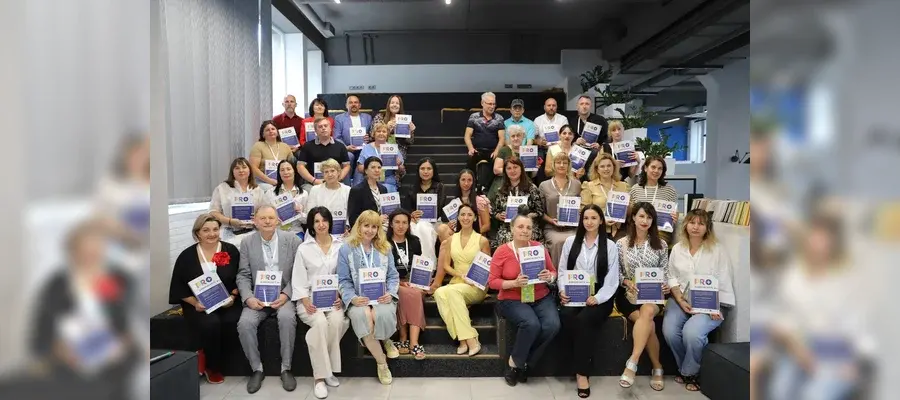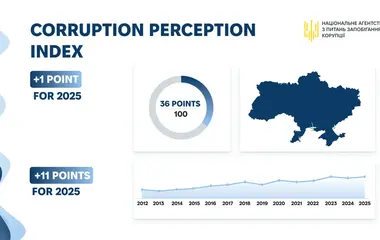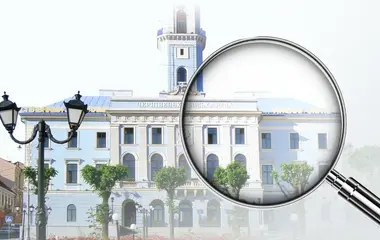On August 19, the National Agency on Corruption Prevention (NACP) hosted a presentation event “Integrity - a Sustainable Norm in Education”, which brought together about 50 educators from different regions of Ukraine.
During the event, experts from the NACP Office of Integrity presented the educational and methodological manual “PROintegrity” (second edition) as well as the educational program “Anti-Corruption Course for 9th Grade”. These are universal tools for integrating the topic of integrity into various lessons, developed by teachers, academics, and practitioners.
The manual and educational program were developed with the support of the EU Anti-Corruption Initiative (EUACI) — the leading anti-corruption program funded by the European Union, co-financed and implemented by the Ministry of Foreign Affairs of Denmark.
The “PROintegrity” manual (https://cutt.ly/JrH2QM5H) will help educators integrate the topic of integrity into the teaching of all subjects for grades 5–11, regardless of the educational field. It covers nine subject areas and contains 110 exercises for classroom integration. Each discipline is provided with examples showing how integrity works in different spheres of life.
The “Anti-Corruption Course for 9th Grade” manual (https://cutt.ly/8rH2WIC8) can be used in law studies classes.
“Education is a space for conveying the right practices and values to children, pupils, and students. If we foster intolerance of corruption from childhood, we nurture citizens who will already tomorrow be capable of changing society and the state for the better,” said NACP Head Viktor Pavlushchyk.
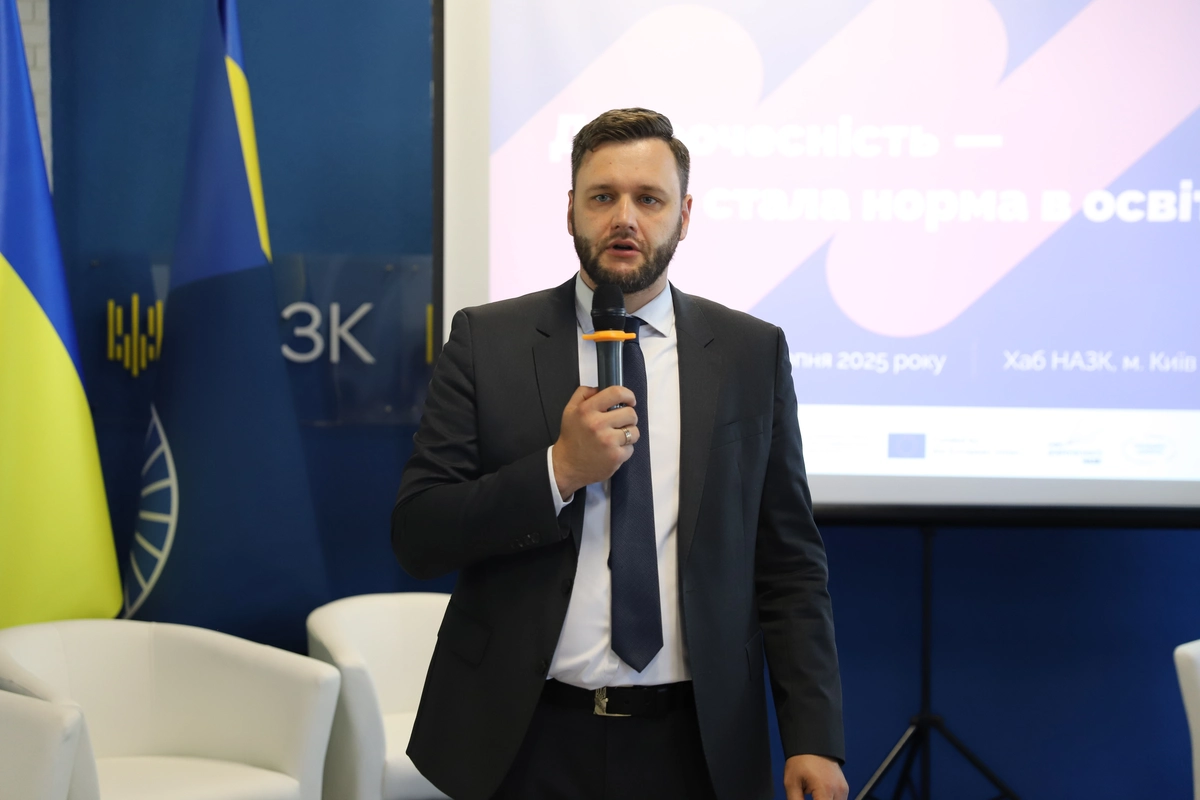
EU Anti-Corruption Initiative (EUACI) Head Allan Pagh Kristensen emphasized that teachers and children in Ukraine are currently facing a wide range of challenges. In addition to their educational responsibilities, teachers have had to take on new duties, including addressing security issues.
“If we want to comprehensively address the fight against corruption, we cannot avoid the issue of education. After all, values of integrity are shaped already at school. That is why the EU Anti-Corruption Initiative supports schools, Integrity Hubs, and now also the development and implementation of the Integrity Development Strategy in Education,” noted Allan Pagh Kristensen.
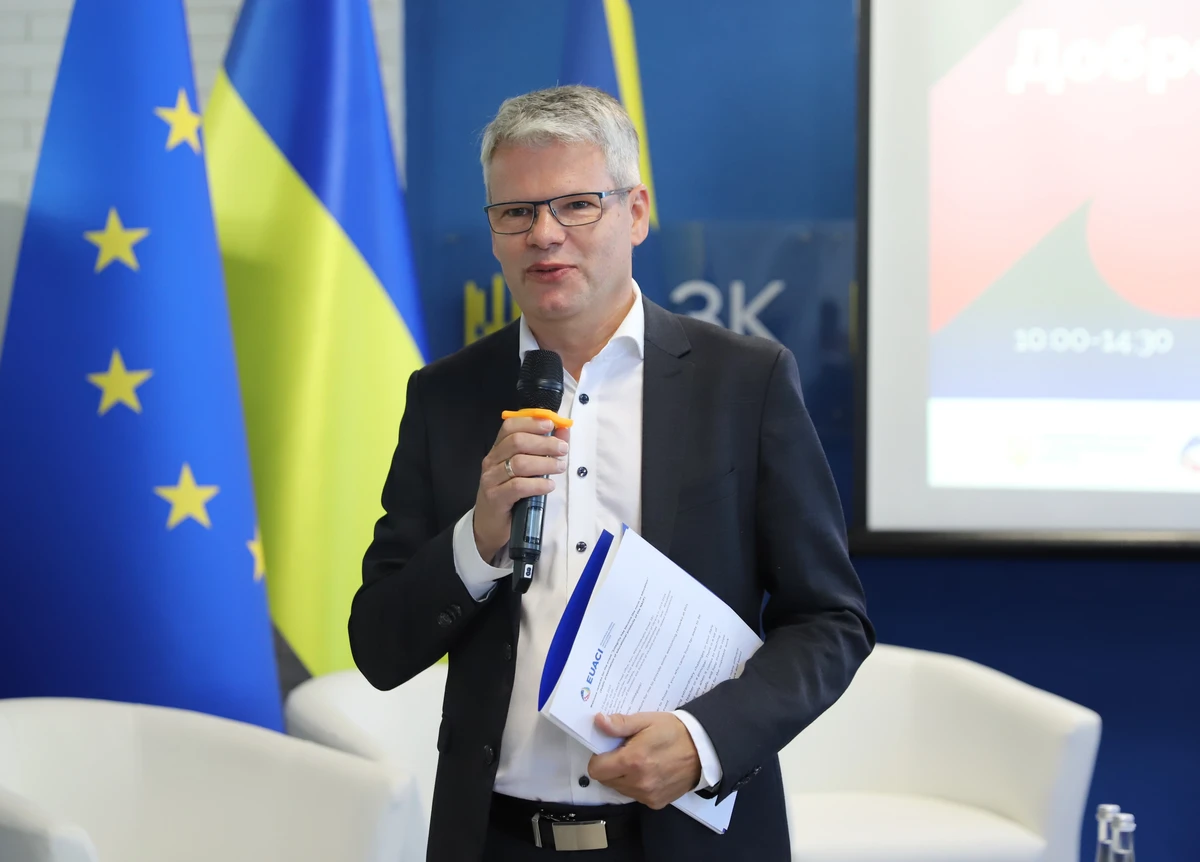
Head of the NACP Department for Educational Outreach and Training Programs Iryna Tymchenko highlighted that these materials will answer teachers’ key questions: what to teach, how to teach, and how to make learning about integrity engaging for students.
The event also featured a panel discussion “Can Education Make Society Integral?”. In workshops, educators together with students tested the materials in practice — in the format of live interaction and collaborative exercises.
Two new Integrity Hubs that joined the community — Lyceum No. 4 of the Zviahel City Council and the Municipal Institution “Vinnytsia Lyceum No. 20” — received special awards and a symbolic document: the Declaration on Building Integrity in General Secondary Education Institutions.
Video recording of the presentation event: https://cutt.ly/drH080Wn
